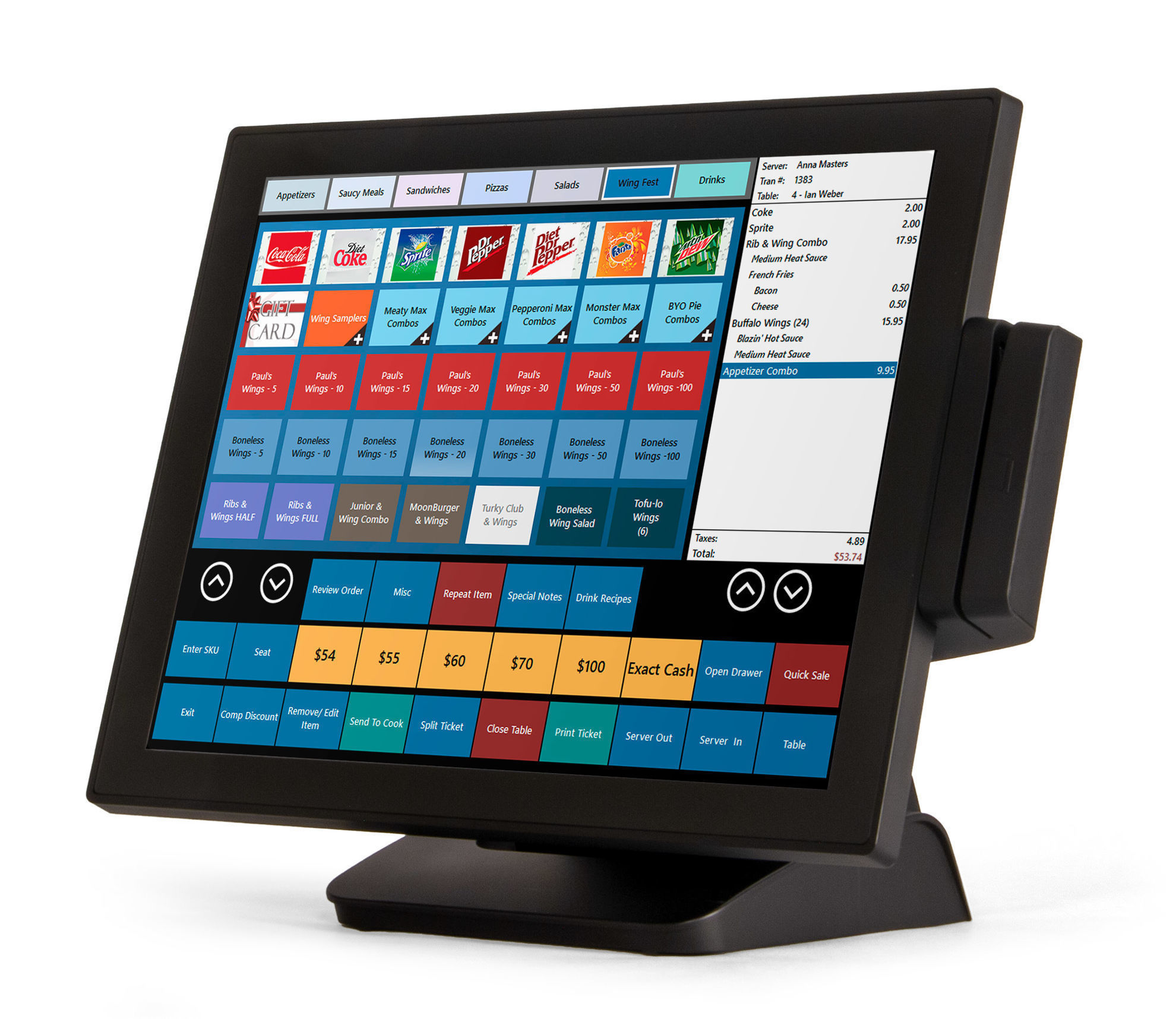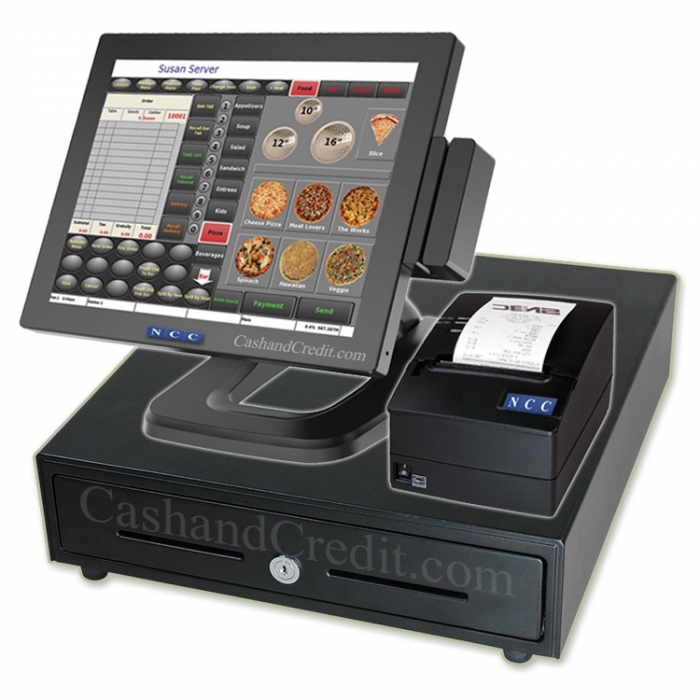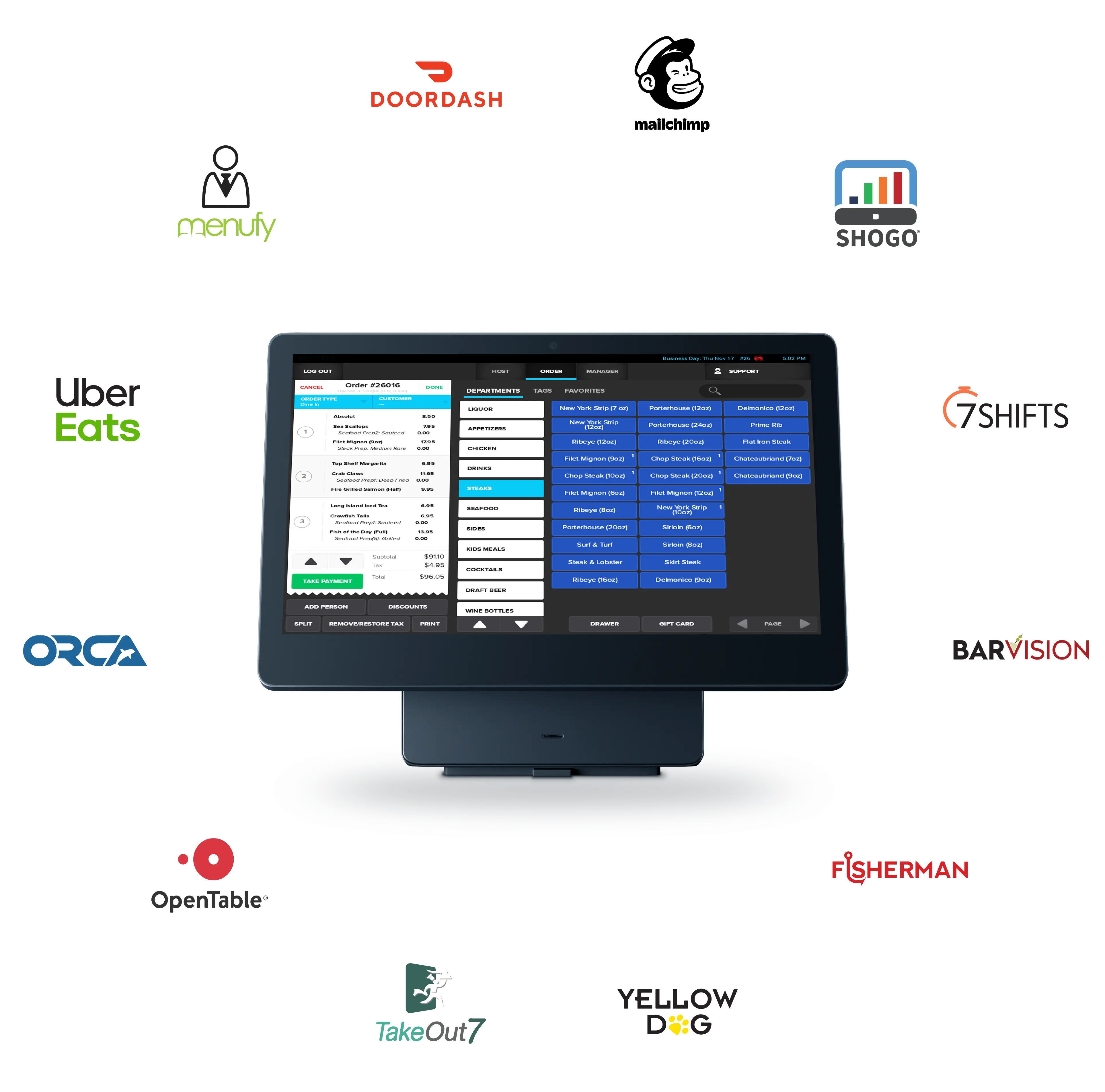Understanding the Value of POS Software in Modern Retail Operations
In today's retail landscape, the role of POS software has come to be significantly considerable. These systems have actually changed from standard money signs up to complex devices that boost different aspects of operations. They not just enhance purchases but additionally provide insights that can form service techniques. Recognizing how these systems influence client experience and supply monitoring is crucial for any store seeking to continue to be competitive. The ramifications of these advancements necessitate further expedition.
The Development of POS Software: From Deal Handling to Comprehensive Solutions

Enhancing Consumer Experience Via Advanced POS Includes

Streamlining Stock Management With Integrated POS Systems
Integrated POS systems play an important function in enhancing stock monitoring by automating procedures that typically called for substantial hand-operated initiative. These systems enable retailers to track stock levels in genuine time, eliminating discrepancies that usually arise from manual stock counts. With attributes such as barcode scanning and automated stock replenishment informs, services can maintain excellent inventory degrees without overstocking or stockouts.Furthermore, incorporated POS systems assist in exact forecasting by analyzing historical sales information, allowing merchants to make educated buying choices. This anticipating capability helps companies adjust to altering customer demands and seasonal patterns extra effectively.Additionally, the centralization of stock data throughout multiple sales networks boosts exposure, enabling stores to manage their supply a lot more effectively. Inevitably, the combination of POS systems right into stock monitoring streamlines operations, lowers human error, and adds to increased success.
Real-Time Sales Tracking and Coverage for Informed Decision-Making

Precise stock administration lays the foundation for effective sales tracking and coverage. Real-time sales tracking enables retailers to keep an eye on sales efficiency as it occurs, supplying instant insights into customer buying patterns and patterns. This ability allows businesses to respond quickly to fluctuations sought after, optimizing supply levels and lessening overstock or stockouts.Moreover, integrated POS systems facilitate the generation of thorough records, highlighting essential metrics such as sales by category, time periods, and private products. Such coverage abilities empower merchants to make data-driven decisions, identifying effective techniques and locations requiring enhancement.
The Function of POS Software in Customer Connection Management
POS software plays an important duty in enhancing consumer connection monitoring by allowing retailers to carry out personalized advertising approaches. By assessing customer data, companies can customize promos and communications to satisfy specific preferences. In addition, these systems facilitate the growth of improved commitment programs that encourage repeat company and reinforce consumer engagement.
Personalized Marketing Methods
As retailers increasingly look for to boost customer loyalty and interaction, customized marketing techniques have actually arised as a crucial component of effective client partnership monitoring. POS software plays a crucial duty in this process by collecting and examining client information, making it possible for sellers to tailor advertising efforts to private choices and purchasing behaviors. By leveraging insights from purchase histories, retailers can produce targeted promotions and personalized communications that resonate with customers, fostering a deeper connection. Additionally, the integration of POS software with customer relationship management systems permits seamless tracking of consumer communications, making sure that marketing strategies remain pertinent and prompt (Restaurant POS Software). This data-driven technique not just improves client contentment however likewise drives sales and urges repeat company, solidifying the store's market placement
Improved Commitment Programs
Stores are significantly acknowledging the importance of commitment programs in promoting long-lasting customer partnerships and improving overall involvement. POS software plays a crucial duty in the advancement and management of these programs, permitting sellers to track consumer acquisitions, preferences, and behaviors properly. By leveraging data analytics, businesses can create customized incentives and incentives that reverberate with individual consumers, consequently increasing engagement in loyalty programs. Furthermore, POS systems enable seamless assimilation with mobile apps and electronic systems, helping with very easy accessibility to rewards and promos. This not just enhances find client satisfaction however additionally drives repeat business. Ultimately, POS software empowers retailers to grow much deeper links with their clientele, transforming occasional consumers right into dedicated patrons through targeted and meaningful interaction strategies.
Integrating POS Systems With Ecommerce Operating Systems for Omnichannel Success
To attain true omnichannel success, seamless combination in between point-of-sale (POS) systems and shopping systems is vital. This assimilation allows sellers to merge their supply monitoring, making certain that product accessibility is precisely shown throughout both online and physical shops. Consumers take advantage of a cohesive shopping experience, where they can easily switch in between networks without experiencing discrepancies.Furthermore, integrated systems help with real-time information sharing, making it possible for businesses to evaluate customer actions and choices better. This data-driven strategy enables sellers to tailor marketing strategies and optimize supply degrees, eventually improving customer complete satisfaction and driving sales.Additionally, the capability to procedure deals throughout platforms streamlines operations, decreasing the risk of errors and enhancing overall performance. As merchants increasingly take on omnichannel methods, the combination of POS systems with e-commerce systems stays an important aspect in accomplishing lasting development and preserving competitive advantage in the dynamic retail landscape.
Future Trends in POS Modern Technology and Their Effect On Retail Procedures
As retail operations evolve, future fads in POS technology are readied to reshape the landscape substantially. The surge of cloud-based remedies, developments in mobile POS systems, and the advantages of AI integration are amongst the key advancements anticipated to improve performance and customer experience. These improvements promise to improve procedures and foster a much more vibrant retail environment.
Cloud-Based Solutions Rise
With the raising reliance on innovation, cloud-based POS remedies are changing retail operations by providing boosted flexibility and scalability. These systems allow merchants to access real-time data from anywhere, promoting much better decision-making and client solution. By leveraging cloud framework, companies can minimize upfront prices associated with equipment and software installments while making certain smooth updates and upkeep. In addition, cloud-based options sustain multi-location monitoring, permitting retailers to synchronize stock and sales throughout various electrical outlets effortlessly. This versatility is important in today's hectic market, where consumer preferences change quickly. As more sellers take on these solutions, they can anticipate better operational performance and a much more responsive approach to market demands, eventually improving customer fulfillment and commitment.
Mobile POS Innovations
The development of retail innovation continues to form procedures, specifically with the surge of mobile POS technologies. These systems allow sellers to process purchases anywhere within the shop, improving customer engagement and simplifying check out processes. Mobile POS remedies boost stock management by permitting instant accessibility to supply levels, aiding personnel assist consumers a lot more effectively. Additionally, they promote tailored buying experiences through incorporated customer information and loyalty programs. As mobile tools end up being increasingly advanced, sellers are embracing functions such as contactless settlements and digital receipts, furthermore enhancing the buying journey. The shift in the direction of mobile POS not only improves functional efficiency yet likewise lines up with the expanding consumer preference for ease, guaranteeing that stores remain affordable in a swiftly evolving market.
AI Combination Advantages
AI integration represents a transformative jump in POS modern technology, providing merchants a myriad of advantages that enhance operational page performance and consumer experience. By leveraging device understanding formulas, merchants can assess purchasing patterns and optimize stock administration, minimizing waste and stockouts. Additionally, AI-powered analytics provide personalized marketing recommendations, allowing targeted promos that raise client interaction and loyalty. Chatbots and online assistants streamline customer service, enabling for quicker resolution of questions and improving the general buying experience. Anticipating analytics can also anticipate need patterns, allowing smarter staffing and resource allowance. Inevitably, the assimilation of AI in POS systems equips sellers to Get More Information make data-driven decisions, cultivating a competitive edge in an ever-evolving retail landscape.
Frequently Asked Concerns
What Are the Prices Related To Carrying Out POS Software?
The costs connected with carrying out POS software can include software licensing costs, equipment costs, setup costs, training prices, and recurring maintenance. Each aspect contributes to the total investment required for an effective application.
How Can Small Retailers Gain From POS Systems?
Small stores can take advantage of POS systems with boosted deal performance, streamlined stock administration, and improved customer insights. These systems allow far better decision-making, inevitably resulting in enhanced sales and client satisfaction in competitive markets.
What Hardware Is Required for a POS System?
A typical POS system requires necessary equipment parts, consisting of a touchscreen display, cash drawer, barcode scanner, invoice printer, and settlement terminal. These components collaborate to help with effective deal handling and stock administration for sellers.

Can POS Software Be Customized for Specific Retail Demands?
POS software can undoubtedly be tailored to satisfy details retail requirements. Restaurant POS Software. This adaptability enables companies to tailor attributes, interfaces, and coverage tools, enhancing operational effectiveness and providing an extra individualized experience for both team and customers
Exactly How Secure Is Customer Data in POS Systems?
The protection of customer data in POS systems differs extensively. Lots of systems implement security, safe and secure accessibility controls, and normal updates, but susceptabilities can still exist, requiring recurring vigilance and proactive procedures from stores to shield delicate details.